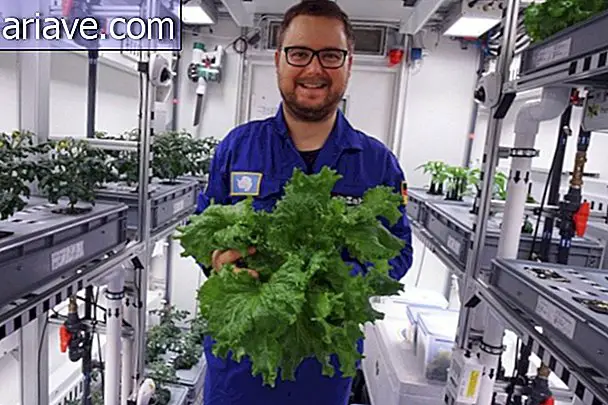Chinese scientists plan to market pet microporks
The list of possible pets to acquire is gaining a new member: the little pig. Exactly. Now children and adults looking for a pet friend will have a chance to choose from cats, dogs, birds, fish, chinchilla, guinea pig and pigs, among others.
Although it may not seem so big news, after all there are already cases of people who own pet pigs, the difference now is that this fact should become more common. This is because Chinese researchers plan to sell a new breed of "microporch", designed to be raised as a housemate.
The animals are genetically altered and programmed to grow to a maximum of 15 kg, resulting in the size similar to that of a medium-sized dog, according to the Science Alert website. The announcement was made by the Beijing Genomic Institute (BGI) during the Shenzhen International Biotechnology Leaders Meeting in late September this year.

Initially created for research purposes, the “piglets” will be offered to the public soon and should cost US $ 1, 600. That price, according to BGI Animal Science Technical Director Yong Li, is just an initial experience to feel what the public and the market will be like.
Genetic alteration will allow variety of traits
Genetic alteration of pigs will allow consumers more than just having a pet pig in their homes. According to BGI, in the future, customers will have the opportunity to choose between different colors and types of leather.
According to Li, the institute plans to use all the proceeds from the sale of micropores to invest in research. "The goal is to take orders and see how big the demand will be, " explained the director.

The news attracted public attention, according to geneticist Even Lars Bolund, who helped in the development of genetic alteration of animals. He was surprised by the announcement of the sale for domestication, but stated that the pigs stole the show at the event. “We had more audiences than anyone else. People clung to them, and everyone wanted to hold them, ”Bolund added.
There are those who question the idea
Genetic alteration of animals is not unanimous in the world of science. From an ethical standpoint, many scholars oppose the practice of using gene handling for light purposes, such as commercialization to the public.
One of those who discuss the BGI project is Martin Luther University geneticist from Halle-Wittenberg, Germany, Jens Boch. He helped the Chinese institute develop the technique used to create the micropores. "It is questionable whether we should impact the health, welfare and life of other animal species on the planet without any concern, " the researcher said in an interview with Nature.
Would you have a pet pig? Tell us about the Mega Curious Forum











